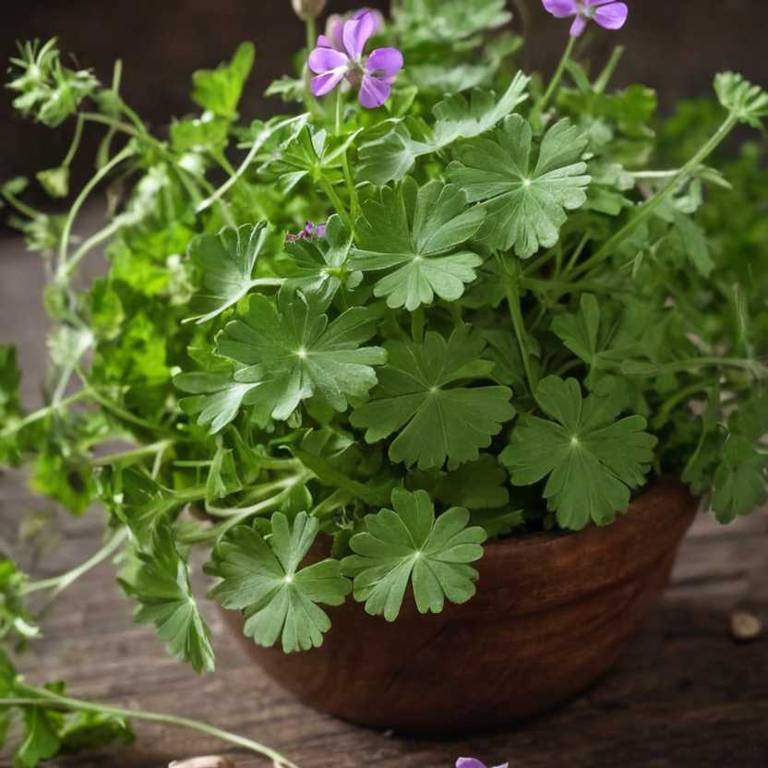Geranium Maculatum: What To Know Before Using It For Medicinal Purposes

Geranium maculatum, commonly known as spotted geranium, has been traditionally used for its potential medicinal properties.
The plant contains various bioactive compounds, including flavonoids and tannins, which may contribute to its therapeutic effects. It has been historically employed to treat ailments such as inflammation, digestive issues, and skin conditions due to its astringent and anti-inflammatory properties. Modern research suggests that Geranium maculatum may have antimicrobial and antioxidant activities, supporting its use in natural remedies.
However, further scientific studies are needed to fully understand its efficacy and safety for medicinal applications.
Health Benefits
Geranium maculatum has several health benefits, such as its ability to support respiratory health due to its expectorant properties that help clear mucus from the lungs.
It is also known to have anti-inflammatory effects, which can aid in reducing swelling and pain associated with various conditions. The plant contains antioxidants that help neutralize free radicals, promoting overall cellular health and reducing oxidative stress. Additionally, some studies suggest that Geranium maculatum may have antimicrobial properties that can help combat certain bacterial and fungal infections.
Its use in traditional medicine also highlights its potential role in improving circulation and supporting immune function.
10 Best Health Beneift of Geranium maculatum
Bioactive Constituents
Geranium maculatum has several bioactive constituents, such as flavonoids, tannins, and alkaloids, which contribute to its medicinal properties.
These compounds exhibit antioxidant, anti-inflammatory, and antimicrobial activities, making the plant valuable in traditional and modern pharmacology. Flavonoids like quercetin and kaempferol are known for their ability to neutralize free radicals and protect cells from oxidative stress. Tannins in Geranium maculatum may support wound healing and digestive health due to their astringent properties.
Additionally, alkaloids present in the plant have been studied for their potential role in treating various ailments, although further research is needed to fully understand their therapeutic applications.
Medicinal Preparations
Geranium maculatum has several medicinal preparations, such as teas, tinctures, and salves, that have been used traditionally for their therapeutic properties.
A common method is to make a herbal tea by steeping dried leaves and flowers in hot water, which is believed to support digestive health and alleviate menstrual discomfort. Tinctures prepared with alcohol extract the plant's active compounds, offering a concentrated form for treating inflammation and respiratory issues. Salves made from infused oils or beeswax can be applied topically to soothe skin irritations and reduce pain.
These preparations highlight the plant's versatility and long-standing role in herbal medicine.
Side Effects
Geranium maculatum can have some side effects, such as skin irritation or allergic reactions when the plant is handled or ingested.
Some individuals may experience redness, itching, or a rash after contact with the plant's sap or leaves. Ingesting large quantities of Geranium maculatum may lead to gastrointestinal issues like nausea, vomiting, or diarrhea. Although it is generally considered safe in small amounts, it is important to avoid consuming any part of the plant without proper guidance.
As with any plant, it is advisable to consult a healthcare professional before using it for medicinal purposes.